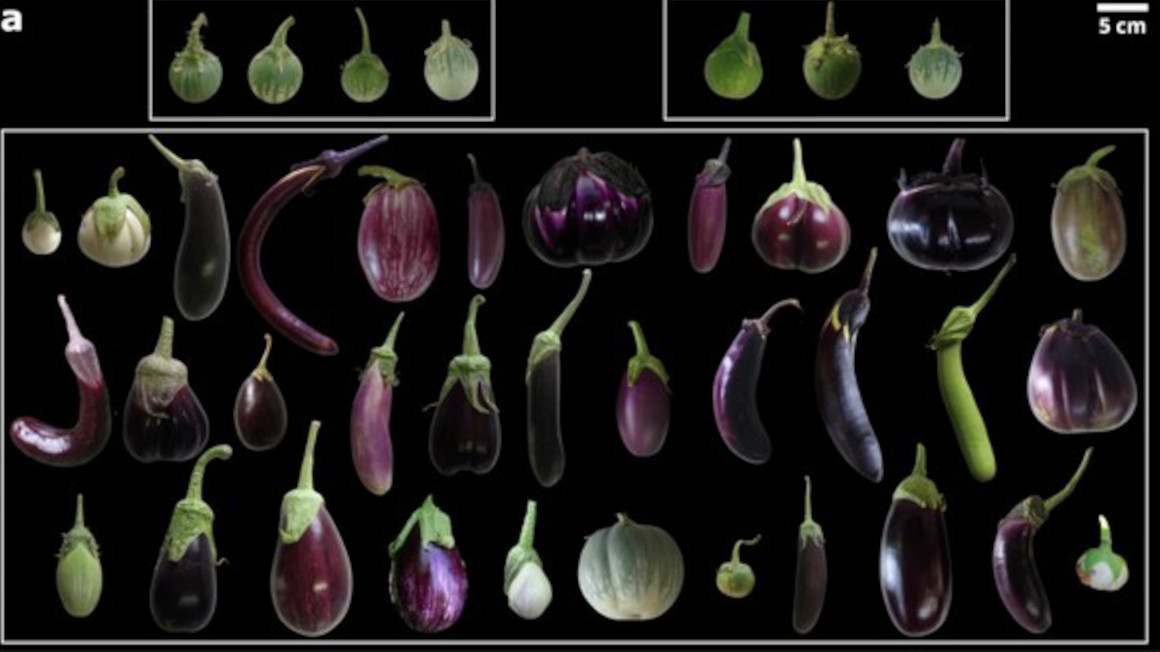Surprise ruling by ECJ
The Court of Justice of the European Union declared that crops bred via the gene-editing tool CRISPR-Cas are "GMOs" and are to be regulated as such.

The ruling of the European Court of Justice (ECJ) regarding the regulation of crops created with new molecular and genome-editing breeding techniques was announced yesterday, July 25th, in Luxembourg. The long-awaited decision was met with cheers by environmental groups and consumer organisations, but caused disillusionment and lack of understanding among researchers and entrepreneurs
According to the verdict, all organisms generated by mutagenesis are genetically modified organisms (GMOs) and are thus generally subject to the strict regulation of the European directive for genetically modified organisms (GMO Directive). This includes the targeted mutagenesis by the new tool CRISPR-Cas and other so-called genome editing tools that allow for a much more targeted modification of the genome than previous techniques.
Yet, in the view of the ECJ, the application of the new methods involves similar risks as the methods resulting in transgenic plants in which foreign genetic material is introduced into the genome of the organisms. Hence, their reasoning: Exempting the new breeding methods from genetic engineering regulation would not be compatible with the precautionary principle.
An exception, however, still applies to classical mutagenesis methods – such as ionizing radiation or mutagenic chemicals – their application has long been studied and used and is thus considered safe. However, the court also stated that Member States are "free to subject such organisms (...) to the obligations laid down in the GMO Directive". Thus, according to the ECJ, the use of CRISPR-Cas in plants is a genetic modification and therefore all plants bred using this method must be labeled and regulated in accordance with the GMO Directive. There has been a heated debate surrounding the definition of "genetically modified organisms" among scientists and regulators in recent years, especially since the advent of the CRISPR-Cas toolkit.
Mixed reactions from politics
The surprising verdict was met with mixed reactions from politics, economics and environmental associations. Federal Research Minister Anja Karliczek said that as research minister she would have preferred a more research-friendly judgment. "Now it will be important that the application of genetic engineering law does not impede modern plant breeding research in Germany and Europe," said the Minister. Innovative plant breeding methods and tools are necessary to meet the challenges of climate change.
Federal Minister for Agriculture Julia Klöckner stressed the importance of carefully evaluating the judgment of the ECJ. Consumer protection is priority. "At the same time, I want to keep my eye open for developments and innovations," Klöckner said. In many countries, new breeding technologies are already in place and are indispensable to ensure adequate supplies of grain, for example. In her statement, Klöckner pointed to the impact of the ECJ ruling on an international level. While plants generated via new breeding techniques are deregulated in certain countries outside the EU, they require approval in the EU according to the Genetic Engineering Law. "This is a patchwork of regulations, which the European Commission now has to combine." Federal Environment Minister Svenja Schulze called the verdict good news, since the protection of the environment and health is a top priority. "Now we finally have the necessary legal clarification."
Scientists are disappointed
The President of the National Academy of Sciences Leopoldina Jörg Hacker demonstrated disappointment concerning the verdict from Luxembourg: "The ECJ ruling points in a different direction than the one that the National Academy of Sciences Leopoldina and numerous other research institutions have long proposed: not the breeding process should be decisive for the legislator, but the product." Especially for many smaller biotech companies that were working towards bringing CRISPR-Cas-engineered drought-tolerant plant varieties to the market, this judgment could be detrimetal.
Industry warns of international disadvantages
The Federal Association of German Plant Breeders (BDP) described the judgment as a step backwards for agriculture and society. "In its ruling, the ECJ ignores the scientific assessment of experts from European and national authorities, according to which plants that do not differ from classically bred ones should not be classified as GMOs," said BDP chairman Stephanie Franck. The association also referred to the unanswered question of how to deal with imported products from abroad that were created using the new breeding methods. The President of the German Farmers' Association, Joachim Rukwied, also criticized the verdict: "Europe is in danger of missing out on connecting with other regions of the world. This judgment prevents us to employ the necessary tools and possibilities to master the challenges of climate change regarding plant breeding. The EU genetic engineering law now has to be reviewed and assessed concerning its future viability to take advantage of the opportunities offered by the new breeding methods."
The industry associations expressed similar consternation. Peter Heinrich, CEO of the biotech industry association BIO Deutschland said: "What is important is whether the organism could have been created naturally and whether the precautionary principle is respected, and not how it came to be." Managing Director of BIO Deutschland Viola Bronsema additionally referred to the already used and approved but substantially more error-prone breeding methods that use chemicals or ionizing radiation. "Therefore it is very unfortunate and even incomprehensible that the ECJ has decided to exclude these procedures (CRISPR-Cas) from the mutagenesis exception."
According to the German Industry Association for Biotechnology (DIB), the ECJ ruling and its sweeping extension of the European GMO Directive blocks the enormous potential for innovation provided by genome editing. DIB CEO Ricardo Gent said: "The verdict is very bad news for plant breeders, drug researchers and bio-based chemicals manufacturers. Highly innovative methods such as Crispr-Cas are over-regulated without any scientific justification.” Germany and Europe would thus fall behind all countries such as China, the United States and Russia when it comes to expertise in biotechnology.
Consumer and environmental organisations support ECJ ruling
In contrast, environmental and consumer associations were highly satisfied with the verdict: "In its judgment, Europe's highest court confirms the position of environmental and consumer protectionists, independent scientists and GMO-free companies," said Hubert Weiger, chairman of the Federation for the Environment and Nature Conservation (BUND). Moreover, now, politicians need to act: "The Federal Government has promised in its coalition agreement that it guarantees freedom of choice for consumers with respect to genetic engineering and the resulting crops," Weiger said. The biotech-critical consulting firm Testbiotech also welcomed the verdict. According to them, obvious differences between conventional breeding and the new genetic engineering techniques could be demonstrated in the resulting plants, beven if no additional genes were inserted.
jmr/pg


